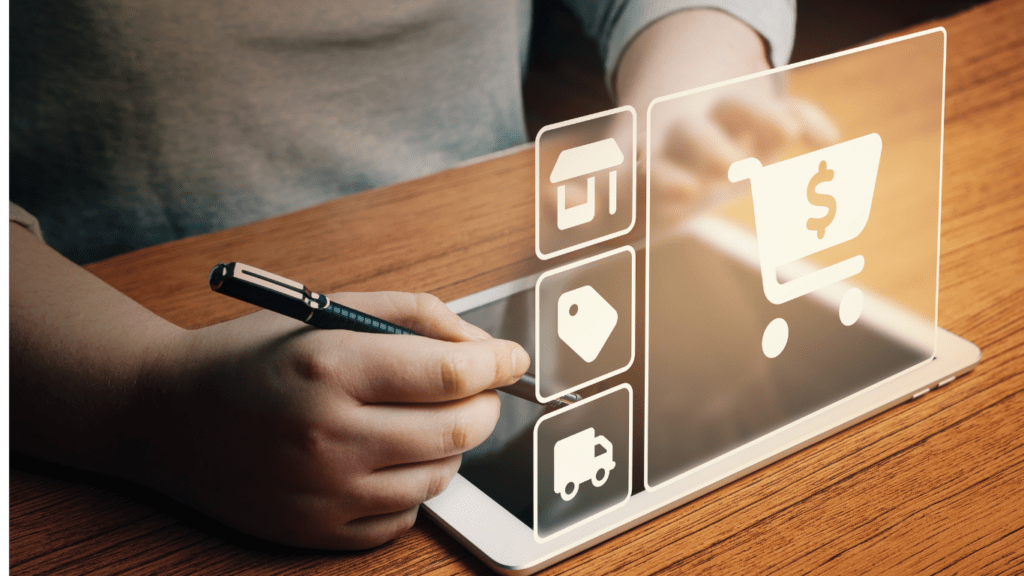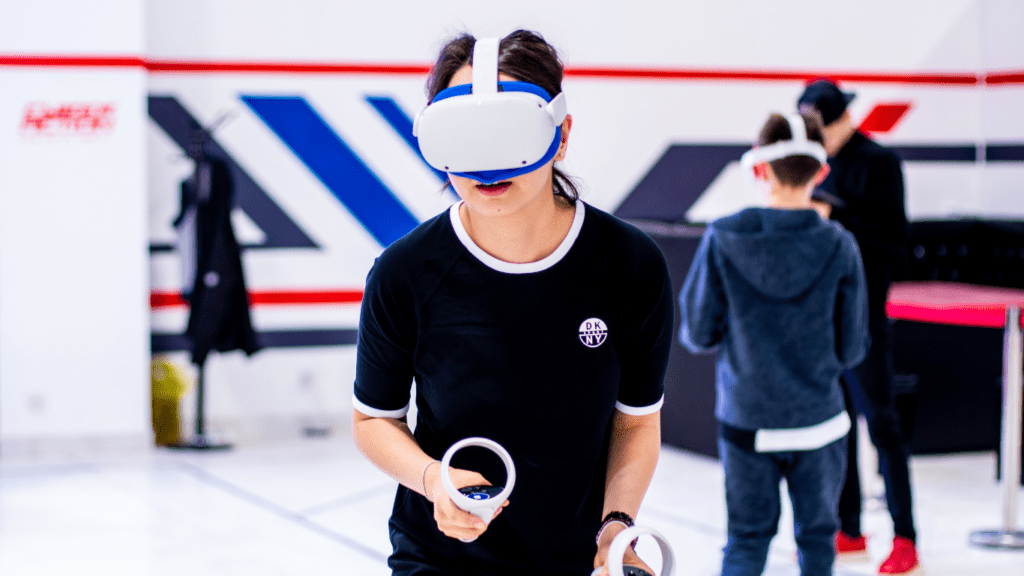The Rise of E-commerce and What It Means for Retail
The growing dominance of e-commerce is transforming retail. This shift impacts consumer behavior and highlights the benefits of online shopping over traditional retail.
Changes in Consumer Behavior
E-commerce’s rise has altered how consumers shop. More people prefer online shopping due to its convenience and 24/7 availability. A 2022 report by Statista noted that global e-retail sales reached $5.7 trillion, underlining this trend.
Online platforms offer personalized shopping experiences with AI-driven recommendations tailored to individual preferences. This personal touch influences buying decisions, making consumers more likely to purchase suggested products.
Mobile commerce is also growing, with over 72% of e-commerce sales conducted via smartphones. This convenience factor drives higher engagement and repeat purchases.
Advantages of Online Shopping Over Traditional Retail
Online shopping presents several advantages, making it increasingly popular. Consumers enjoy the convenience of shopping from home, avoiding crowded stores and long checkout lines.
E-commerce platforms often provide a wider range of products compared to physical stores. They also offer competitive pricing, with easy access to price comparisons and customer reviews.
Additionally, AI-powered tools enhance the shopping experience by providing personalized product recommendations, resulting in higher customer satisfaction.
Online stores operate around the clock, catering to the needs of consumers who prefer to shop at different times. This availability leads to increased sales and customer loyalty.
| Aspect | E-commerce | Traditional Retail |
|---|---|---|
| Convenience | Shop from anywhere, any time | Restricted by store hours |
| Product Range | Extensive, global access | Limited by physical space |
| Pricing | Competitive, easy comparisons | Often higher, harder to compare |
| Personalization | AI-driven recommendations | Limited personalization |
| Operating Hours | 24/7 availability | Restricted hours |
The continued rise of e-commerce reshapes retail, offering unprecedented convenience and personalization.
Technological Innovations Reshaping Retail
Emerging technologies are transforming the retail landscape. Leading retailers are leveraging innovations to enhance customer experiences and streamline operations.
Artificial Intelligence and Personalization
Retailers use AI to analyze customer behavior and preferences, delivering a personalized shopping experience. AI-driven recommendations suggest products based on browsing history, purchase patterns, and demographic data.
Machine learning algorithms predict demand, optimize inventory, and reduce stockouts, improving overall sales efficiency. Chatbots provide instant customer service, handling inquiries and facilitating smoother transactions.
The Impact of Augmented Reality and Virtual Reality

AR and VR are revolutionizing the way customers interact with products. AR applications allow users to visualize products in their environment, such as placing furniture in a room or trying on clothes virtually.
Retailers using VR provide immersive experiences, enabling customers to explore virtual stores and experience products firsthand. These technologies enhance decision-making, reduce returns, and increase customer satisfaction by offering a realistic preview before purchase.
Sustainability and Ethical Shopping
Growing consumer awareness has pushed sustainability and ethical practices to the forefront of retail.
Growing Demand for Eco-Friendly Products
Consumers increasingly prioritize eco-friendly products. Demand for items made from sustainable materials, such as organic cotton and recycled plastics, continues to rise.
A 2022 McKinsey survey noted that 60% of respondents consider sustainability an important factor in their purchasing decisions. This trend is evident across various categories, including fashion, beauty, and household goods.
For example, in the fashion industry, companies like Patagonia and Everlane offer products using sustainable sourcing and manufacturing practices.
How Retailers Are Responding to Ethical Consumption
- Retailers are adapting to ethical consumption trends by integrating sustainable practices into their business models.
- Many now offer transparency in their supply chains, listing the origins of their materials and production methods.
- Major brands, such as Adidas and H&M, have launched initiatives to reduce their environmental impact by promoting circular fashion and recycling programs.
- Additionally, some retailers provide third-party certifications, like Fair Trade or B Corp, to assure consumers of their commitment to ethical standards.
The Evolution of In-Store Experiences
Retail stores are adapting to changing consumer expectations by enhancing in-store experiences.
Integrating Technology into Physical Stores
Retailers are incorporating advanced technologies to attract and engage customers. Smart mirrors, for example, provide virtual try-ons, enabling shoppers to see how clothes fit without changing.
Mobile payment systems like:
- Apple Pay
- Google Wallet
reduce checkout times, improving customer satisfaction.
Automated inventory management ensures stores remain well-stocked, using RFID tags to track stock levels in real-time. Digital signage offers dynamic marketing, displaying personalized promotions based on customer demographics.
The Role of Experiential Retail
Experiential retail focuses on creating memorable shopping experiences. Stores are transforming into interactive spaces where customers can engage with products directly.
For instance, Lululemon offers yoga classes in-store to demonstrate their activewear’s performance features. Pop-up shops create exclusive shopping experiences by offering limited-time collections, attracting shoppers looking for unique, one-of-a-kind items.
Retailers like Sephora provide beauty workshops, allowing customers to sample products and receive personalized advice, fostering brand loyalty through hands-on experiences.




